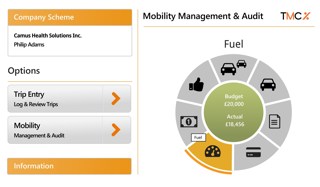Business mobility data analyst TMC has published a short guide, explaining when a journey can and can’t be claimed as business mileage.
The growing flexibility around workplace locations has led to confusion about when staff can legitimately claim mileage expenses, according to TMC, which captures, analyses and vets mobility data logged by over 110,000 employees in the UK and internationally.
Paul Hollick, managing director of TMC, said: “Employers and employers are often unsure whether journeys to or from home or a temporary workplace should be counted as business, 'claimable commuting' or private mileage for BIK purposes.
“It's a complex area – the official HMRC guidance runs to nearly 80 pages. For the benefit of the growing number of people who work flexibly, we have distilled the guidelines down to six key principles that address the most commonly-encountered scenarios.”
The guide explains the standard definitions of business and commuting mileage, and outlines the principles that apply to claiming for trips to and from temporary workplaces; or when passing your workplace on the way to somewhere else, and when visiting company premises if the employee works from home.
Flexible working is expected to become rapidly more widespread. Government figures suggest that 90 per cent of employers already have at least one employee working from home.
Hollick said: "We know, from conversations with our clients and drivers, that flexible working is on the increase as people seek the benefits of improved work-life balance; lower travel costs, and a smaller carbon footprint.
“Companies now have many tools at their disposal for managing remote working, while TMC can offer solutions to enable them to handle their employees’ mobility data and travel cost reimbursements compliantly."
To obtain a copy of the guide, click here.




















Login to comment
Comments
No comments have been made yet.